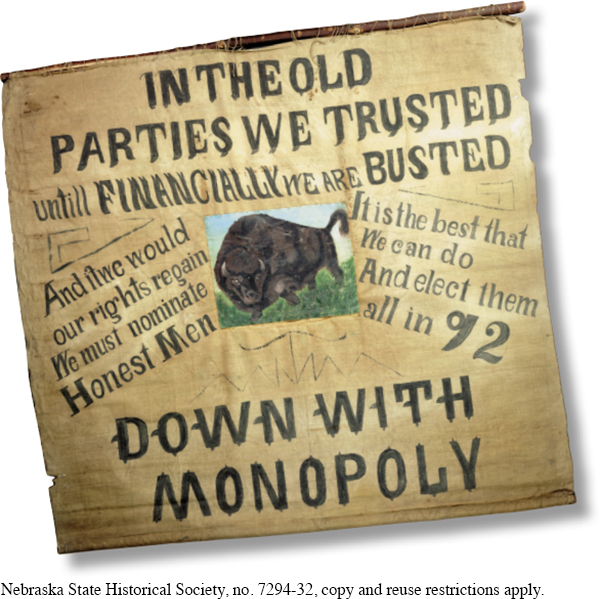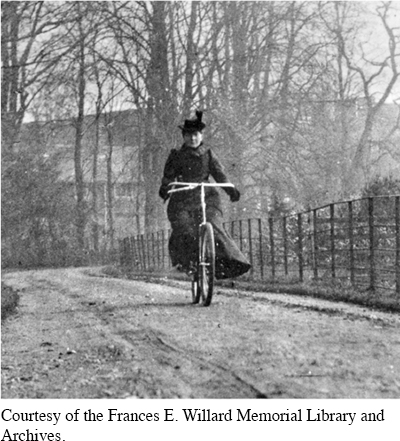The American Promise: Printed Page 557
The American Promise, Value Edition: Printed Page 511
The American Promise: A Concise History: Printed Page 580
Introduction to Chapter 20
The American Promise: Printed Page 557
The American Promise, Value Edition: Printed Page 511
The American Promise: A Concise History: Printed Page 580
Page 55720
Dissent, Depression, and War
1890–

CONTENT LEARNING OBJECTIVES
After studying this chapter, you should be able to:
Identify the economic and social ills American farmers and laborers faced at the turn of the century and how Farmers’ Alliances and the Populist movement aimed to address some of these problems.
Explain the factors that led to the labor wars of the 1890s.
Characterize the political activism of American women during the last decades of the nineteenth century.
Describe the political climate during the depression of 1893 and identify the defining issues of the election of 1896.
Explain American expansionism in the late nineteenth century, how the United States emerged as a world power, and the resulting debate over American imperialism.
FRANCES WILLARD TRAVELED TO ST. LOUIS IN FEBRUARY 1892 WITH high hopes. Political change was in the air, and Willard was there to help fashion a new reform party. As head of the Woman’s Christian Temperance Union (WCTU), an organization with members in every state and territory in the nation, Willard wielded considerable clout. At her invitation, twenty-
Exposition Music Hall presented a colorful spectacle. “The banners of the different states rose above the delegates throughout the hall, fluttering like the flags over an army encamped,” wrote one reporter. The fiery orator Ignatius Donnelly attacked the money kings of Wall Street. Terence V. Powderly, head of the Knights of Labor, called on workers to join hands with farmers against the “nonproducing classes.” And Frances Willard took the podium, urging the crowd to outlaw liquor and give women the vote.
The American Promise: Printed Page 557
The American Promise, Value Edition: Printed Page 511
The American Promise: A Concise History: Printed Page 580
Page 558
Delegates hammered out a series of demands, breathtaking in their scope. They tackled the tough questions of the day—
The convention ended its work amid a chorus of cheers. According to one eyewitness, “Hats, paper, handkerchiefs, etc., were thrown into the air; . . . cheer after cheer thundered and reverberated through the vast hall reaching the outside of the building where thousands who had been waiting the outcome joined in the applause till for blocks in every direction the exultation made the din indescribable.”
What was all the shouting about? The crowd, fed up with the Democrats and the Republicans, celebrated the birth of a new political party, officially named the People’s Party. The St. Louis gathering marked an early milestone in one of the most turbulent decades in U.S. history. An agrarian revolt, labor strikes, a severe depression, and a war shook the 1890s. As the decade opened, Americans flocked to organizations including the Farmers’ Alliance, the American Federation of Labor, the Woman’s Christian Temperance Union, and the National Woman’s Suffrage Association. Their political alliance gave birth to the People’s (or Populist) Party. In a decade of unrest and uncertainty, the Populists countered laissez-
This challenge to the status quo culminated in 1896 in one of the most hotly contested presidential elections in the nation’s history. At the close of the tumultuous decade, the Spanish-
CHRONOLOGY
| 1884 |
|
| 1890 |
|
| 1892 |
|
| 1893 |
|
| 1894 |
|
| 1895 |
|
| 1896 |
|
| 1898 |
|
| 1899– |
|
| 1901 |
|